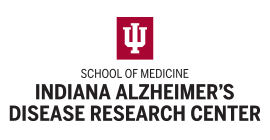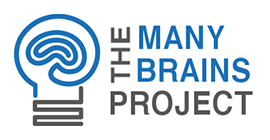We are an innovative, multi-disciplinary, multi-institutional network of world-renowned
experts in ADRD research.
Our Team

Martin Sliwinski

Sy-Miin Chow

Duke Han

Laura Thi Germine

Todd Horowitz

Kristina McLinden

Luke Stoeckel

Ashley Tate

Jessie Alwerdt

Kari Whitehead

Corianna Moffatt

Jenna Axelrod

David M. Almeida

Rebecca Amariglio

Justin T. Baker

Ganesh M. Babulal

Angela R. Bradbury

Tim W. Brearly

Randy L. Buckner

Andrea Cataldo

Seo-Eun Choi

Wendy Chu

Paul Crane

Finale Doshi-Velez

Daniel Elbich

John M. Felt

Krzysztof Z. Gajos

Alyssa Gamaldo-Roddy

Jonathan G. Hakun

Kristin Harkins

Jason Hassenstab

Michael D. B. Hunter

Jinshil Hyun

Susanne M. Jaeggi

Richard Jones

Mario Juguilon

Jason Karlawish

Mindy Katz

Jennifer Kraschnewski

Jessica B. Langbaum

Emily A. Largent

Kaylee Litson

Paolo Martini

Luis D. Medina

Livia Montana

Shubhabrata (Joey) Mukherjee

Elizabeth Muñoz

Zita Oravecz

Kate Papp

Laura A. Rabin

Ritika R. Chaturvedi

Katharina Reinecke

Nelson Roque

Lesley Ross

Angie Sardina

Andrew J. Saykin

Aaron Seitz

Shifali Singh

Roger W. Strong

Louisa I. Thompson

Emily Trittschuh

James O. Uanhoro

Ipsit V. Vahia

Chun Wang

Scott T. Yabiku

Nicholas Ashton

Martin Sliwinski
Martin Sliwinski, Ph.D., is the contact Principal Investigator for OMNI ADRD, and co-leads its Measures Core team. He is the Gregory H. Wolf Professor in Healthy Aging and Human Development at Penn State and directs the Penn State Center for Healthy Aging and the Penn State Geroscience and Dementia Prevention Consortium. His research interests include dynamic phenotyping of daily experiences and cognitive function. His projects frequently employ brief ambulatory cognitive assessments of cognitive function, ongoing behavior, psychological states, and environmental exposures to understand these processes and their interrelationships in real-time and in people’s natural environment.

Sy-Miin Chow
Sy-Miin Chow, Ph.D., is a Professor of Human Development & Family Studies at Penn State. She is Director of the Center for Innovation in Intensive Longitudinal Studies, leads the Research Coordinating Center for NIH’s Intensive Longitudinal Health Behavior Network, and directs the QuantDev unit within the Social Science Research Institute. She is also an affiliate faculty member at the Institute for Computational and Data Sciences at Penn State. Her research interests include dynamic modeling of longitudinal data, approaches for handling technical and methodological issues that arise in studies of change and human dynamics, and modeling of emotional, child development and family processes. Dr. Chow co-leads the Data Core team for OMNI ADRD, providing expertise on computational methods, digital health data harmonization, developing modern psychometrics, and data sharing.

Duke Han
Duke Han, Ph.D., who co-leads the OMNI ADRD Applied Validity Core is a Professor of Psychology, Family Medicine, Neurology, and Gerontology at the University of Southern California . He also serves as the co-leader of the Research and Education Core for the USC Alzheimer’s Disease Research Center, Co-Director of the Scientific Research Network in Decision Neuroscience of Aging, and the Editor-In-Chief of The Journals of Gerontology Series B: Psychological Sciences. Dr. Han is a board-certified clinical neuropsychologist and a recognized leader in neuropsychology and aging research. His research focuses on neuropsychological assessment, neuroimaging, decision-making in aging, financial vulnerability, and Alzheimer’s disease.

Laura Thi Germine
Laura Thi Germine, Ph.D. is an Associate Professor and Chief of the Division of Brain and Cognitive Health Technology in the Department of Neurology at the Albert Einstein College of Medicine. She co-leads the Technology and Dissemination Core for OMNI ADRD. Her research centers on developing and validating technologies to understand and improve cognitive health in neuropsychiatric disorders and aging, with an emphasis on cognitive changes occurring prior to symptom onset. She is the co-creator and the Director of the online cognitive testing site, TestMyBrain.org.

Todd Horowitz
Todd S. Horowitz, Ph.D., serves as the NIH Program Officer for OMNI ADRD. Dr. Horowitz is Chief of the Basic Biobehavioral & Psychological Sciences Branch of the National Institute on Aging (NIA), which supports research on behavior change, cognitive and emotional functioning, behavioral genetics, family and interpersonal relationships, and other social and behavioral factors as they related to aging, ADRD, and well-being in mid-life and older age.

Kristina McLinden
Kristina McLinden serves as an NIH Project Scientist for OMNI ADRD. As the Program Director for Alzheimer’s Disease Clinical Trials at NIA, she oversees the non-pharmacological Alzheimer’s disease and related dementias clinical trials portfolio, which focuses on behavioral, cognitive, neuromodulation, diet, and exercise interventions and devices to prevent, delay, and treat Alzheimer’s Disease and related dementias.

Luke Stoeckel
Luke E. Stoeckel, Ph.D., serves as Project Scientist for OMNI ADRD at the National Institute on Aging. As a clinical neuropsychologist and neuroscientist, Dr. Stoeckel leads initiatives in cognitive measurement development and the refinement of assessment frameworks for Alzheimer’s disease and related dementias research. His work focuses on advancing the precision and evidence base of cognitive outcome measures in the research and clinical context, including developing taxonomies and ontologies that enable more robust cross-study comparisons. Dr. Stoeckel’s research portfolio encompasses the cognitive and decision-making changes associated with aging, with particular emphasis on behavioral prediction, neuropsychological phenotyping, and the integration of neuroscience approaches to understand cognitive decline. Through his role in NIA’s Division of Behavioral and Social Research, he works to strengthen the measurement infrastructure that supports the ADRD research community.

Ashley Tate
Ashley Tate, Ph.D., is a project manager for OMNI ADRD and serves as a research project manager with the Penn State University Center for Healthy Aging, where she oversees a diverse portfolio of research initiatives within the Center. Dr. Tate has extensive experience managing research projects, with expertise in grant submissions, regulatory compliance, community engagement, and fostering collaborations across multiple universities and industry partners.

Jessie Alwerdt
Jessie Alwerdt, Ph.D., is a project manager for OMNI ADRD and serves as a research project manager for the Penn State Center for Healthy Aging. She specializes in digital cognitive assessment and aging research to advance the measurement and understanding of cognitive change. Dr. Alwerdt’s career background bridges cognitive neuroscience and applied research operations, with expertise in cognitive assessment development and multilevel modeling.

Kari Whitehead
Kari Whitehead, M.S., serves as a project manager for OMNI ADRD and as a research project manager and marketing coordinator for the Penn State Center for Healthy Aging. Her expertise spans project management, research protocol development, regulatory compliance, database design, data management, and data visualization.

Corianna Moffatt
Corianna Moffatt is a project manager for the OMNI ADRD Technology and Dissemination Core activities, including project management, staff supervision, documentation, and communications. They lead operations and program management for the Many Brains Project, managing the build and distribution of free cognitive testing tools, and facilitating the successful implementation of custom digital research studies.

Jenna Axelrod
Jenna Axelrod, Ph.D., is a project manager for the OMNI ADRD Applied Validity Core and serves as a research project manager for Dr. Duke Han’s lab at the University of Southern California. Dr. Axelrod is a board-certified clinical neuropsychologist with expertise in cognitive aging, and continues to work both clinically, as well as is involved with teaching and supervising doctoral level students.

David M. Almeida
David M. Almeida, Ph.D., a Professor at Penn State, is a life-span developmental psychologist specializing in stress and coping in middle adulthood. He is recognized for developing tools to measure daily stress and leading major longitudinal studies on how daily stressors affect health, especially in midlife and older adults. Dr. Almeida has extensive experience with middle and late adulthood studies, intensive repeated measurements, and the development of measurement tools.

Rebecca Amariglio
Rebecca E. Amariglio, Ph.D., is an Associate Professor of Neurology at Harvard Medical School and a clinical neuropsychologist at Brigham and Women’s Hospital and Massachusetts General Hospital. Her research focuses on early detection and tracking of Alzheimer’s disease (AD), particularly through subjective cognitive decline (SCD) and the development of sensitive cognitive assessment tools. She has contributed to establishing SCD criteria, validating outcome measures, and developing digital tools for remote cognitive assessment. Dr. Amariglio’s expertise also includes AD biomarkers, PET imaging, and neuropsychological and functional assessment.

Justin T. Baker
Justin T. Baker, M.D., Ph.D., is an Associate Professor of Psychiatry at Harvard Medical School and Scientific Director at McLean Hospital. He specializes in cognitive neuroscience, functional neuroimaging, and digital phenotyping. Dr. Baker is an expert in passive digital phenotyping, integration of passive and active data for phenotype development and validation, return of research results from digital phenotyping for clinical care, and adaptation of measures from psychiatry for high frequency/intensive longitudinal designs. Dr. Baker has also led major research consortia and contributed significantly to both academic and industry advancements in digital health.

Ganesh M. Babulal
Ganesh M. Babulal, Ph.D., OTD, is an Associate Professor of Neurology at Washington University School of Medicine and Director of The DRIVES Project and ARCHES laboratories. His research interests include (1) characterizing functional changes in older adults using biomarkers (structural and functional imaging, cerebrospinal fluid, plasma), (2) predicting a decline in performance and behavior via novel methodologies, (3) identifying reliable noncognitive behavioral markers that predict preclinical disease states, and (4) examining the relationship between mental health and cognitive functioning on brain health. This work has resulted in over 140 publications, and Dr. Babulal leads or co-leads multiple NIA-funded projects focused on Alzheimer’s disease and related disorders.

Angela R. Bradbury
Angela R. Bradbury, Ph.D., is a physician-scientist and Associate Professor at the University of Pennsylvania. She specializes in the ethical, legal, and social implications (ELSI) of genetic medicine, with a focus on expanding access to genetic services through telehealth and digital interventions, particularly for diverse and underserved populations.

Tim W. Brearly
Timothy W. Brearly, Psy.D., FANA is a Clinical Neuropsychologist and an Associate Professor of Neurology, Neuroscience, and Experimental Therapeutics at the Penn State College of Medicine. Dr. Brearly specializes in the development and implementation of reliable neurocognitive biomarkers, particularly those that can be collected using consumer technologies. His research emphasizes remote and teleneuropsychological methods for disease detection and monitoring of cognitive change in neurodegenerative and other pathologies.

Randy L. Buckner
Randy L. Buckner, Ph.D., is a Cognitive Neuroscientist at Harvard University. His laboratory explores the organization and function of large-scale human brain networks that contribute to high-level cognition and uses multiple approaches to characterize brain networks and examine how variation gives rise to differences in network organization and behavior. Dr. Buckner’s work on neuroimaging methods has contributed to influential open science tools, such as XNAT and DPDash. He has expertise in within-individual measurement strategies, precision mapping of brain function and structure, large-scale data collection, open data sharing, cerebellum mapping, association networks in the cortex, neuromodulation, and presurgical planning.

Andrea Cataldo
Andrea M. Cataldo, Ph.D., is an Assistant Neuroscientist at McLean Hospital and an instructor in Psychiatry at Harvard Medical School. Her research integrates neurobehavioral experiments and computational modeling to uncover the psychological mechanisms underlying memory and decision-making. She has expertise in response time modeling, Bayesian statistics, and multi-analyst methods. Her most recent work in computational psychiatry has used drift diffusion modeling to identify computational phenotypes underlying mood disorders, including a persistent negative retrieval bias in depression.

Seo-Eun Choi
Seo-Eun Choi, Ph.D., is a Senior Research Scientist at the University of Washington School of Medicine. She specializes in psychometrics, probability theory, Bayesian statistics, spatio-temporal modeling, categorical data analysis, machine learning and multivariate data analysis. She has led and developed workshops on these topics, where she taught and trained other researchers at multiple stages of their career in computational skills and statistical modeling.

Wendy Chu
Wendy Chu, J.D., is a Clinical Instructor at the Harvard Law School Cyberlaw Clinic. Her legal practice is focused on intellectual property, privacy, media law, and nonprofit and startup counseling. Prior to joining the Cyberlaw Clinic, Wendy was a technology transactions associate at Morrison Foerster, where she advised on a broad range of technology, intellectual property, internet law, media law, and commercial issues.

Paul Crane
Paul K. Crane, M.D., M.P.H., is a Professor in the Department of Medicine at the University of Washington. Dr. Crane has expertise in applying modern psychometric tools to cognitive testing in older adults, especially those with Alzheimer’s disease and related dementias. His Center for Psychometric Analyses in Aging and Neurodegeneration lab is the psychometric methodology hub for the Cognition Core of the Alzheimer’s Disease Sequencing Project Phenotype Harmonization Consortium, which has harmonized and co-calibrated domain scores for memory, executive functioning, language, and visuospatial ability across hundreds of thousands of study occasions for more than a hundred thousand individual participants across dozens of studies from the US and around the world. He also serves as multiple PI of the Adult Changes in Thought study, a prospective cohort study of older adults from a healthcare delivery system focused on AD and dementia.

Finale Doshi-Velez
Finale Doshi-Velez, Ph.D., Finale Doshi-Velez is a Herchel Smith Professor in Computer Science at the Harvard Paulson School of Engineering and Applied Sciences, specializing in probabilistic modeling and interpretable machine learning, particularly for healthcare applications. Her work advances clinical decision support, disease modeling, and policy evaluation using large, complex datasets.

Daniel Elbich
Daniel Elbich, Ph.D., is a Data Scientist at Penn State Health Milton S. Hershey Medical Center. His research interests include the relationship between physical activity and cognitive health and the detection of cognitive decline in high-functioning older adults. Dr. Elbich specializes in cognitive task development and data analysis pipeline creation for studies using ambulatory cognitive assessments, leveraging his extensive programming expertise.

John M. Felt
John M. Felt, Ph.D., is an Assistant Research Professor at Penn State’s Center for Healthy Aging. He uses quantitative methodology and advanced statistical modeling to study how early life experiences, particularly child maltreatment, affect aging, cognitive functioning, and health outcomes. Dr. Felt has developed and applied advanced longitudinal and multilevel models, including Bayesian methods, to study within- and between-person health trajectories, and has worked to improve psychometric methods for reliability and validity of self-report measures. His research work focuses on health disparities, prevention science, and representative neuropsychological research.

Krzysztof Z. Gajos
Krzysztof Z. Gajos, Ph.D., is a Professor at the Harvard Paulson School of Engineering and Applied Sciences, specializing in human-AI interaction, accessible computing, and large-scale behavioral research. He leads the Intelligent Interactive Systems Group and has developed digital tools for motor impairment assessment, advanced human-AI decision-making research, and pioneered online behavioral study platforms. Dr. Gajos has over a decade of experience measuring and modeling functional limitations of individuals with motor and cognitive impairments. His work emphasizes accessibility, algorithmic fairness, and the societal impacts of AI.

Alyssa Gamaldo-Roddy
Alyssa A. Gamaldo, Ph.D., is a Professor of Psychology at Clemson University, specializing in cognitive aging, health disparities, and community engagement among diverse older adult populations. Her research centers on cognitive health, sleep, and the biological and social determinants of cognitive decline, with a focus on racial disparities and interventions to improve cognitive outcomes.

Jonathan G. Hakun
Jonathan G. Hakun, Ph.D., is an Associate Professor of Neurology, Psychology, & Public Health Sciences at Penn State University specializing in neurocognitive aging, ambulatory cognitive assessment, intensive longitudinal designs, and mHealth interventions for dementia prevention. He leads the Cognitive and Mobile Phenotyping Neurolab and has significant experience developing and validating digital cognitive assessment tools for at-risk and aging populations. Dr. Hakun is also the principal investigator on several projects examining the role of aging and executive control in self-regulation of healthy behaviors, including physical activity adherence for dementia risk reduction.

Kristin Harkins
Kristin Harkins, M.P.H., is a Research Program Manager at the University of Pennsylvania’s Penn Memory Center. She has extensive experience executing the day-to-day operations of research on ethical and social issues in late life cognitive impairment, and in the design and implementation of quantitative and qualitative studies.

Jason Hassenstab
Jason Hassenstab, Ph.D., is the Norman J. Stupp Professor of Neurology and Professor of Psychological & Brain Sciences at Washington University in St. Louis, where he directs the Cognitive Technology Research Laboratory (CTRLab) specializing in developing digital cognitive assessments and digital biomarkers for use in studies of ADRD. He is the Principal Investigator of the ARC-Down Syndrome study, and international multi-site study of Down syndrome-associated Alzheimer’s disease. He also directs the Cognition Cores for the Dominantly Inherited Alzheimer Network studies and the Knight Alzheimer’s Disease Research Center at WashU.

Michael D. B. Hunter
Michael D.B. Hunter, Ph.D., is an Assistant Professor at Penn State University specializing in quantitative methods, psychometrics, and statistical software development. Dr. Hunter’s specific expertise includes the application of these methods to psychological and health-related research, developing statistical software for modeling longitudinal and time series data and applied these tools to research on panic disorder, social anxiety disorder, substance abuse, and genetic factors in Alzheimer’s Disease.

Jinshil Hyun
Jinshil Hyun, Ph.D., is an Assistant Professor in the Saul R. Korey Department of Neurology at the Albert Einstein College of Medicine. Her research focuses on modifiable risk and protective factors related to cognitive aging and dementia, cognitive reserve, mentally challenging occupations, neighborhood environment, stress, social determinants of health, ecological momentary assessment, and ambulatory cognition.

Susanne M. Jaeggi
Susanne M. Jaeggi, Ph.D., is a Professor at Northeastern University where she directs the Brain Game Center for Mental Fitness and Well-being. She specializes in cognitive neuroscience, working memory, executive control, and cognitive interventions, particularly for aging populations and those at risk of dementia. She has led major multi-site research projects, developed cognitive assessments and interventions, and contributed significantly to methodological standards in cognitive enhancement research.

Richard Jones
Richard N. Jones, Sc.D., is a Professor at Brown University’s Warren Alpert Medical School specializing in quantitative science, cognitive aging, dementia, and psychiatric epidemiology. He leads the Quantitative Science Program, with extensive experience in psychometrics, data management, and statistical analysis. Dr. Jones additionally has experience applying methods such as advanced multivariate data analysis, item response theory, and latent variable models to mental health and aging research.

Mario Juguilon
Mario Juguilon is a Software Engineer with experience in JavaScript and Python, SQL and NoSQL database systems, and full-stack web development.

Jason Karlawish
Jason Karlawish, M.D., is a Professor of Medicine, Medical Ethics and Health Policy, and Neurology at the University of Pennsylvania and co-director of the Penn Memory Center. His research focuses on ethical, legal, and social issues affecting older adults with cognitive impairment. He is the Executive Producer of the Age of Aging, a podcast that examines living well with an aging brain, and writes the Neurotransmissions column for STAT.

Mindy Katz
Mindy Joy Katz, M.P.H., is a Senior Associate at Albert Einstein College of Medicine specializing in neuroepidemiology, biostatistics, and cognitive aging. She has led and contributed to major NIH-funded studies on cognitive decline, dementia, and Alzheimer’s disease, focusing on early detection, prevention, and population-based research.

Jennifer Kraschnewski
Jennifer L. Kraschnewski, M.D., MPH, is a Professor at Penn State College of Medicine and a primary care clinician-scientist with a focus on advancing community health. She leads and collaborates on multiple federally funded projects aimed at improving health outcomes in low-resource and rural settings through innovative, community-engaged, and translational research. Her work addresses chronic disease prevention, substance use disorder, adolescent mental health, and the use of electronic health records for research and policy change.

Jessica B. Langbaum
Jessica B. Langbaum, Ph.D., is the Senior Director of Alzheimer’s Prevention & Research at the Banner Alzheimer’s Institute, Director of the Arizona Alzheimer’s Disease Research Center, and Co-Director of the Alzheimer’s Prevention Initiative (API). Her work focuses on preclinical Alzheimer’s disease, representative participant recruitment and retention, genetic and biomarker result communication, and novel cognitive outcome measure development for prevention trials.

Emily A. Largent
Emily A. Largent, J.D., Ph.D., RN, is an Associate Professor and Chief of the Division of Medical Ethics at the University of Pennsylvania Perelman School of Medicine. She has a secondary appointment at Penn Law. Her research focuses on the ethical, legal, and social issues affecting older adults, particularly those at risk for or living with cognitive impairment, and the implications for research and care. Her interdisciplinary research informs national policy and best practices in biomarker disclosure, supported decision making, and participant remuneration, with a focus on diverse populations.

Kaylee Litson
Kaylee Litson, Ph.D., is an Assistant Professor at the University of Houston specializing in quantitative psychology and psychometrics. Their research focuses on developing methods that bridge the measurement of latent processes to their substantive meaning, drawing from psychometric theory, research design, latent variable modeling approaches, measurement invariance, and the application of these methods in psychology, education, organizational research, and health. Across these areas, their research aims to build tools that explain—not simply estimate—how complex individuals and systems evolve over time through theoretically grounded, systematic methodology. Dr. Litson has developed novel methods for analyzing longitudinal and multimethod data, with an emphasis on understanding measurement equivalence and true score differences of tests across time, cultures, and systems.

Paolo Martini
Paolo Martini, Ph.D. is the Principal Investigator and Head of Research and Development at the Many Brains Project, specializing in open-source digital assessment tools for cognitive and neuropsychological research. He has significant experience in psychophysics, software development, and data security, and leads the development of digital neuropsychology toolkits for remote cognitive testing, contributing to projects on dementia prevention and brain health.

Luis D. Medina
Luis D. Medina, Ph.D., is an Associate Professor at the University of Houston specializing in clinical neuropsychology, cognitive aging, and Alzheimer’s disease-related dementias, with a focus on sociocultural factors and Hispanic/Latino populations. He leads the Collaborative on Aging Research and Multicultural Assessment and is the principal investigator for the NIA-funded ECHAR Network. He has specialized training in geriatric assessment, cognitive evaluation in diverse populations, and research on biomarkers and genetic mutations linked to Alzheimer’s disease. His work emphasizes culturally informed assessment, early disease detection, and improving diagnostic accuracy in neurodegenerative conditions. He is also experienced in interdisciplinary aging research, functional outcomes in neurodegenerative diseases, and identifying risk and resilience factors.

Livia Montana
Livia Montana, Sc.D., is the Survey Director for the Understanding America Study at the University of Southern California Center for Economic and Social Research.

Shubhabrata (Joey) Mukherjee
Shubhabrata (Joey) Mukherjee is a Research Associate Professor at the University of Washington whose work bridges psychometrics, genetics, and neuropathology in Alzheimer’s disease and related dementias. He leads NIH-funded efforts to develop robust, harmonized measures of cognition across large cohorts and to link these harmonized measures with genomic and neuropathological data. Dr. Mukherjee has led and supported genetic research on Alzheimer’s disease to bridge large-scale cognitive harmonization with molecular (e.g., DNA variants, single-nuclei RNA-seq) and neuropathological data.

Elizabeth Muñoz
Elizabeth Muñoz, Ph.D., is an Associate Professor at the University of Texas at Austin specializing in developmental science, with a focus on cognitive aging and health disparities among Hispanic/Latinx and other racially/ethnically minoritized populations. Her research examines how psychosocial and environmental stressors affect cognitive health, using real-world and community-based approaches. She is involved in several NIH-funded projects and recognized for her contributions to inclusive cognitive aging research.

Zita Oravecz
Zita Oravecz, Ph.D., is a Professor at Penn State University specializing in quantitative psychology, cognitive science, and advanced statistical modeling. Her research centers on developing computational and statistical methods to study cognitive and affective processes, particularly related to aging, cognitive decline, and digital health. She has extensive NIH-funded research experience and is recognized for methodological innovations in Bayesian modeling, ecological momentary assessment, and longitudinal data analysis.

Kate Papp
Kathryn (Kate) Papp, Ph.D., is an Associate Professor of Neurology at Harvard Medical School and a clinical neuropsychologist at Brigham and Women’s Hospital and Massachusetts General Hospital. She is recognized for her expertise in early detection and monitoring of preclinical Alzheimer’s disease, particularly through the development and use of digital cognitive assessment tools. Dr. Papp has played key roles in national research initiatives and clinical trials, significantly influencing cognitive outcome measures and trial design in Alzheimer’s disease research. Her research work focuses on clinical neuropsychology, digital health technologies, and translational research on aging and dementia.

Laura A. Rabin
Laura A. Rabin, Ph.D., is a Professor of Psychology at Brooklyn College and the Graduate Center of CUNY, specializing in neuropsychology, cognitive aging, and Alzheimer’s disease research. Her work centers on developing and validating neuropsychological assessment tools for early detection of cognitive decline and dementia. Dr. Rabin’s specific expertise includes early detection of Alzheimer’s disease and related dementias, assessment of preclinical dementia conditions, measurement precision, clinical group classification, interpretation of cognitive changes in older adults, and assessments of judgment and decision-making.

Ritika R. Chaturvedi
Ritika Ratnam Chaturvedi, Ph.D., is a Research Scientist at the University of Southern California’s Center for Economic and Social Research. Her research focuses on understanding how emerging disruptive technologies (e.g., AI, CRISPR, wearable devices, genetically modified organisms, wearables) will impact health care.

Katharina Reinecke
Katharina Reinecke, Ph.D., is a Professor at the University of Washington and Associate Director of Research and Communication within the Paul G. Allen School of Computer Science & Engineering. She directs the Wildlab, the Center for Globally Beneficial AI, and is the co-founder of LabintheWild—a large-scale, volunteer-based online experiment platform. Her research interests are in human-computer Interaction and developing digital technology that is equally usable and useful for everyone. Dr. Reinecke’s career expertise spans tool development for neuropsychological research, online behavioral interventions, and user interfacing in technology design.

Nelson Roque
Nelson Roque, Ph.D., is an Assistant Professor at Penn State University specializing in cognitive assessment, data management, and modeling of intensive longitudinal data in aging populations. He is a co-investigator on the NIH Precision Brain Health Network U24 project, focusing on inclusive neuropsychological measurement for Alzheimer’s disease prevention, with a strong emphasis on healthcare disparities and technology use among minority and aging populations. Dr. Roque has experience in software design for data preparation and analysis, developing R packages for time series feature extraction, and leading technology and data management in large-scale research projects. His research also addresses disparities in healthcare education, measurement of cognitive constructs, and the relationship between cognition, technology, and health outcomes such as air pollution and cardiovascular health.

Lesley Ross
Lesley A. Ross, Ph.D., is a Professor and Endowed Chair in Aging and Cognition at Clemson University with over 20 years of research experience in brain health, cognitive aging, and everyday functioning in older adults. She has led major NIH-funded randomized controlled trials on cognitive training and dementia prevention, developed innovative assessment and data collection methods, and holds leadership roles in gerontology and transportation safety. Her expertise includes leading large-scale randomized controlled trials, developing novel data collection and analytical methods (such as smartphone-based assessments), and contributing to research on mobility, driving safety, and functional outcomes in older adults. She also has experience in neuropsychological assessment, ecological momentary assessment, and advanced statistical methodology.

Angie Sardina
Angie L. Sardina, Ph.D., LRT, CTRS, FDRT, is a licensed and certified Recreation Therapist and a Research Associate Professor within the Clemson University Department of Psychology and Institute for Engaged Aging. Dr. Sardina’s research focuses on understanding biopsychosocial (e.g., pain, sleep, loneliness/social isolation, mental health, leisure engagement and constraints) and contextual factors (e.g., home usability, neighborhood quality) that constrain or support well-being and cognitive and physical health among middle-aged and older adults.

Andrew J. Saykin
Andrew J. Saykin, Psy.D., ABCN, is the Raymond C. Beeler Professor of Radiology and Imaging Sciences and Professor of Medical and Molecular Genetics at the Indiana University School of Medicine. Dr. Saykin serves as director of the Indiana Alzheimer’s Disease Research Center and IU Center for Neuroimaging. He leads the ADNI Genetics Core and is an MPI of several NIA-sponsored consortia (CLEAR-AD, KBASE, AI4AD) with experience in collaborative, transdisciplinary, and multi-institutional team science. His current research program focuses on systems biology approaches to understanding pathways driving AD/ADRD, leveraging multimodal neuroimaging, multi-omics biomarkers, and AI-based strategies. Dr. Saykin is the founding editor-in-chief of Brain Imaging and Behavior, and a highly cited author with over 700 publications.

Aaron Seitz
Aaron Seitz, Ph.D., is a Professor in the Northeastern University College of Science Psychology Department. He also holds appointments in the Physical Therapy, Rehabilitation and Movement Disorders Department in the Bouvé College of Health Sciences, and the Game Design program in the Department of Art and Design in the College of Arts, Media and Design. As Director of the Brain Game Center for Mental Fitness and Well-being, Dr. Seitz uses ambulatory tools (e.g., that run on mobile phones and tablets) to reach larger, more diverse, and traditionally underserved/understudied populations, to understand cognitive diversity (broadly defined) and to create tools to measure function and to personalize training based upon individualized needs.

Shifali Singh
Shifali Singh, Ph.D. is a Clinical Neuropsychologist, Assistant Professor of Psychiatry, and Director of the Digital Neuropsychology and Brain Health Lab at McLean Hospital and Harvard Medical School. Her research focuses on developing, validating, and implementing digital cognitive and speech-based assessments, including ecological momentary assessment tools designed to capture real-time fluctuations in cognition. Dr. Singh leads and collaborates on multiple NIH- and privately funded projects and is recognized for her contributions to scalable, clinically deployable digital diagnostics for Alzheimer’s disease and related dementias, with a particular emphasis on underserved populations.

Roger W. Strong
Roger W. Strong, Ph.D., is the Head of Psychometrics and Data Analytics at the Many Brains Project, with a background in neuroscience, cognitive psychology, and technology in psychiatry. Dr. Strong’s expertise includes psychometrics, data analytics, and the development and validation of digital cognitive assessments. He has advanced training in neuroscience, cognitive psychology, and technology in psychiatry. His work centers on creating, disseminating, and evaluating cognitive testing software, especially for remote and web-based assessments, and includes projects on digital neuropsychology toolkits, ecological momentary cognitive assessment, and analyzing cognitive performance in relation to life outcomes and device variability.

Louisa I. Thompson
Louisa I. Thompson, Ph.D., is an Assistant Professor in the Department of Psychiatry at Brown University Medical School and Associate Director of Research in the Memory and Aging Program at Butler Hospital. Her research centers on developing and validating digital tools for early detection and screening of Alzheimer’s disease and related dementias, with an emphasis on underrepresented populations and integrating digital cognitive assessments into community health settings. She leads and collaborates on multiple NIH- and foundation-funded projects, and is recognized for her leadership in minimally invasive, scalable dementia detection approaches. She also has significant experience in clinical neuropsychology and biomarker research, including retinal imaging and plasma biomarkers.

Emily Trittschuh
Emily H. Trittschuh, Ph.D., is a Professor in the Department of Psychiatry and Behavioral Sciences at the University of Washington, and is a Neuropsychologist and the Associate Director of Education with the Geriatric Research, Education, and Clinical Cener (GRECC) at the VA Puget Sound Health Care System. Her work focuses on cognitive aging, dementia (especially Alzheimer’s disease), neuropsychological assessment, and data harmonization in large studies. She is a co-investigator on multiple NIH-funded projects and has contributed to research on cognitive phenotyping, interventions for mild cognitive impairment and Alzheimer’s disease, and interdisciplinary applications of neuropsychology.

James O. Uanhoro
James O. Uanhoro, Ph.D., is an Assistant Professor at the University of North Texas specializing in Research, Measurement & Statistics. Dr. Uanhoro’s research background is in quantitative research, evaluation, and measurement, with expertise in Bayesian psychometrics, measurement model development, and R package creation. His current work focuses on advancing measurement methods for neuropsychological research, particularly related to Alzheimer’s disease and related disorders.

Ipsit V. Vahia
Ipsit V. Vahia, M.D., is a Board-certified Psychiatrist specializing in Geriatric Psychiatry and serves as the Chief of the Division of Geriatric Psychiatry and Director of Digital Psychiatry Translation at McLean Hospital. His research centers on digital health and technology-driven approaches to assess and manage psychiatric and cognitive symptoms in older adults. He has led multiple funded studies in digital phenotyping, behavioral monitoring, and technology-based interventions for late-life mental health conditions, and has held significant academic and clinical leadership roles.

Chun Wang
Chun Wang, Ph.D., is a Professor of Measurement and Statistics at the University of Washington, specializing in educational and psychological measurement. Her research integrates AI and machine learning with psychometrics to develop fair, reliable, and interpretable assessments. Dr. Wang has led major federally funded research projects and is recognized for her significant contributions to psychometric modeling and assessment science, with work spanning multidimensional and/or multilevel item response theory models, cognitive diagnostic models, and mixture models.

Scott T. Yabiku
Scott T. Yabiku, Ph.D., is a Professor of Sociology and Demography at Penn State University, specializing in technology-driven data collection, mobile cognitive assessments, and the integration of social and environmental contexts in research. He has led and contributed to multiple NIH- and NSF-funded projects, developed innovative data collection tools, and has a strong background in both software development and scientific research methodologies.

Nicholas Ashton
Nicholas J. Ashton, Ph.D., is a Senior Director at Banner Sun Health Research Institute and Banner Alzheimer Institute, and an Associate Professor at the University of Gothenburg. Dr. Ashton is a leading expert in fluid biomarkers for Alzheimer’s disease, with over 250 publications and major contributions to the development, validation, and implementation of plasma biomarkers, particularly phosphorylated tau (p-tau) variants. His work has enabled earlier, non-invasive diagnosis and remote blood testing for neurodegenerative diseases.
Our Institutional Collaborators



















